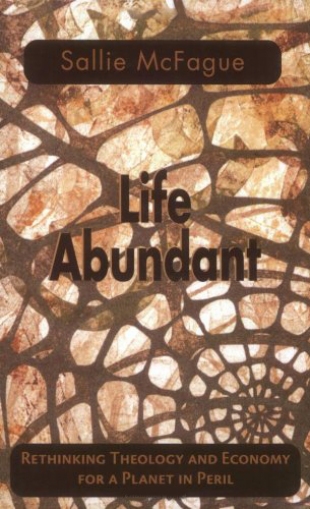"I believe it is time we shifted our glance on the matter of evil from God to ourselves. The great issue before us should be our involvement in almost every kind of evil presently occurring on our planet. Whether we consider poverty and starvation, genocide, ethnic hatred and warfare, racial and sexual discrimination, greed and hoarding, species decline, deforestation, air and water pollution, land degradation, global warming, and even floods, droughts and tornadoes human beings now are responsible, directly or indirectly, to a lesser or greater degree — and some more than others — for all of the above. We should stop fretting about 'theodicy' — how and why God is responsible for evil — and consider the increasing and appalling extent to which we are. This would be a salutary task for the religions, and especially Christianity, to take on: to help us see ourselves clearly as the oppressors that we are. Rather than Christianity focusing its concern with evil on God, let us place the blame where, in our time, it primarily belongs: on the privileged middle and upper classes of the world whose greedy lifestyle is causing greater evil to millions of impoverished people and to millions of dying species, as well as to the very health of our planet, than any so-called 'act of God' ever has. We are bringing about this evil continuously, silently, and insidiously simple by living the way we do.
"So how can we not despair? What possible prospects are there for any significant changes occurring? I began this book with two quotations: one from Irenaeus, 'The glory of God is every creature fully alive' and the other from bishop Serapin of the fourth century, 'We beg you, God, make us fully alive.' The first statement is the prophetic one, the description of life as it should be and as we, God's helpers, should make it be. But the second statement is the sacramental one, the trust that God is able to bring this about, through our willingness and work. In other words, we are not alone. The prophetic witness of God in Christ tells us what we must do; the sacramental embodiment of God in Christ surrounds us with God's empowering presence as we attempt to do it. The first and last words — the words of creation and resurrection — are Yes, not No. The No is enclosed within the Yes: we only discover what sin and evil are as we realize the joy of God's love, the love of others, and the love that is the world. That is the reality that I have gradually come to realize over the last fifty years; it is not what we must do or can do, but what God can and does do through us. We are instruments of divine love and reflections of divine glory. We were created in God's image, in the image of love, and our goal is to grow more fully into that image by loving each other and the world in concrete, practical, daily ways; in other words, in just and sustainable ways. But we are not left on our own to do this: God is with us, all of us, every second of every day. Our task is to become aware of God's presence. As we do so we will both see the world differently and be empowered to act differently in and toward it. We are called to see differtly — and then to live differently, as differently as we can, with God's help."
